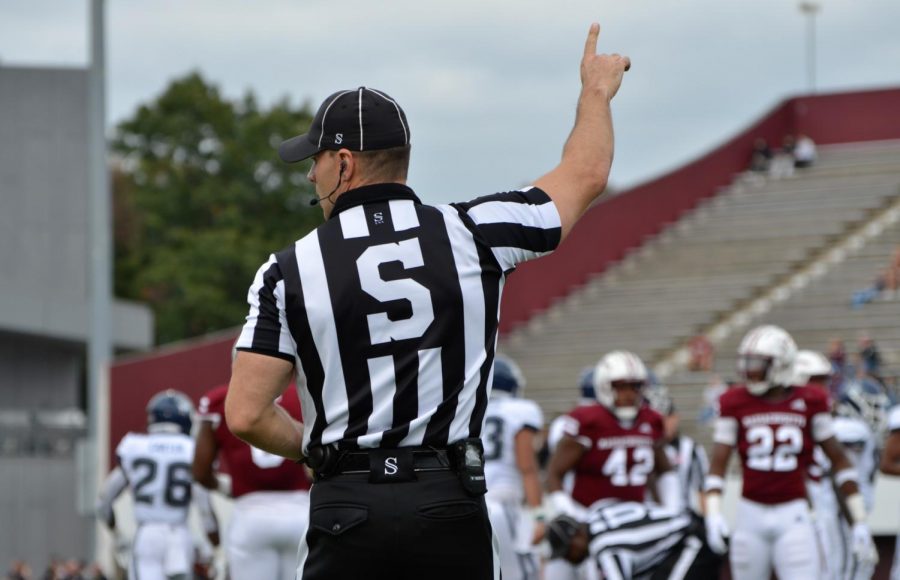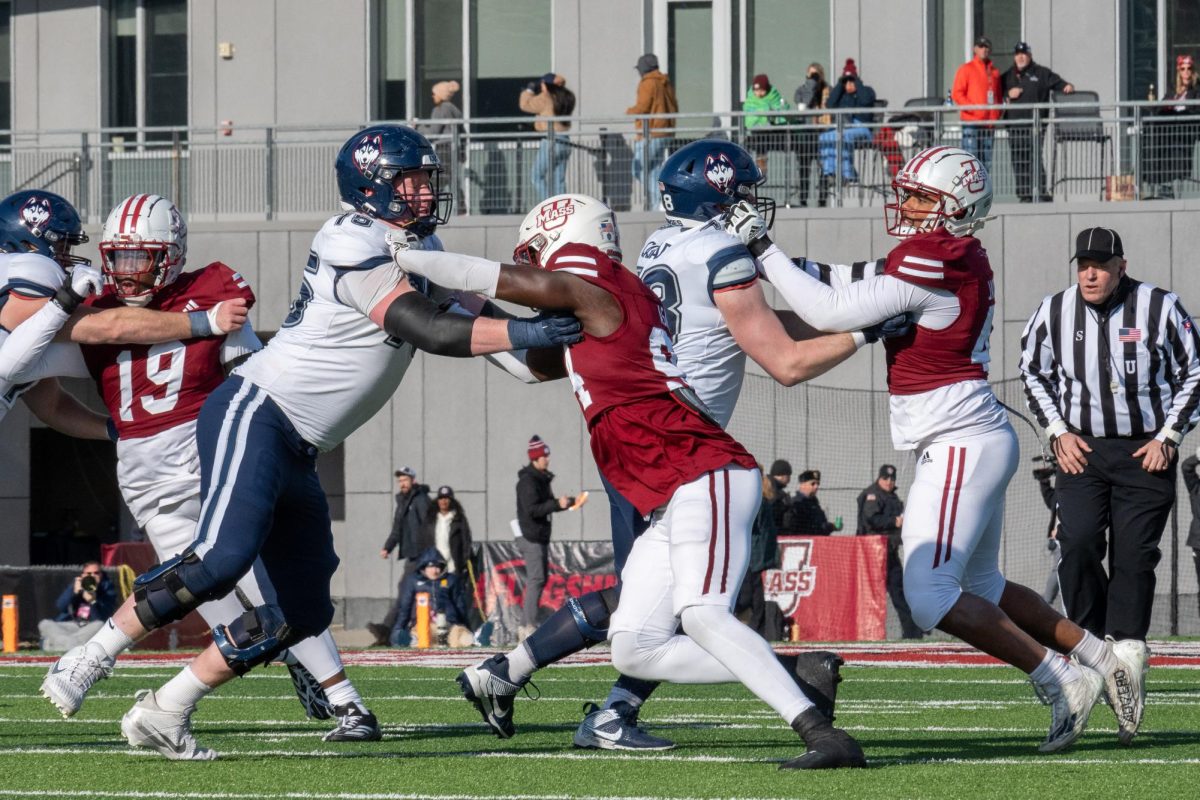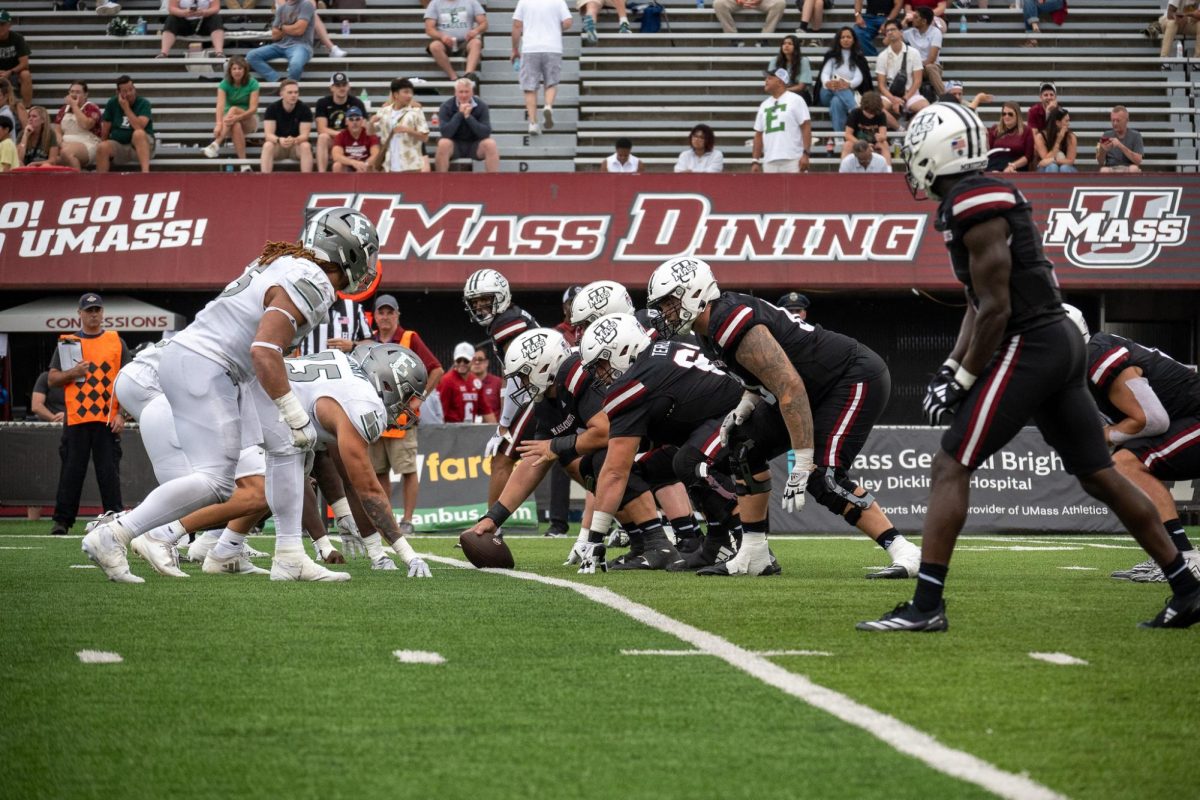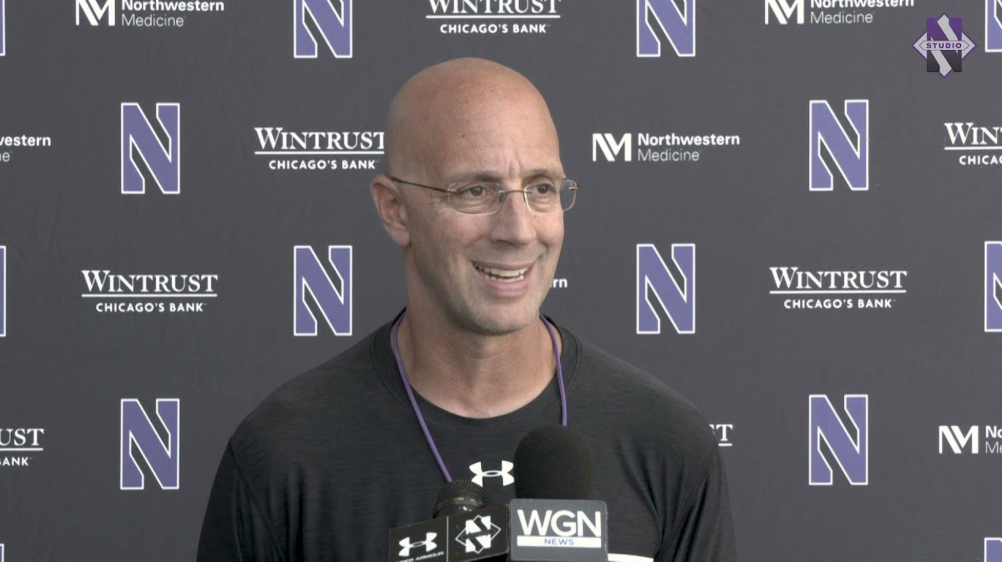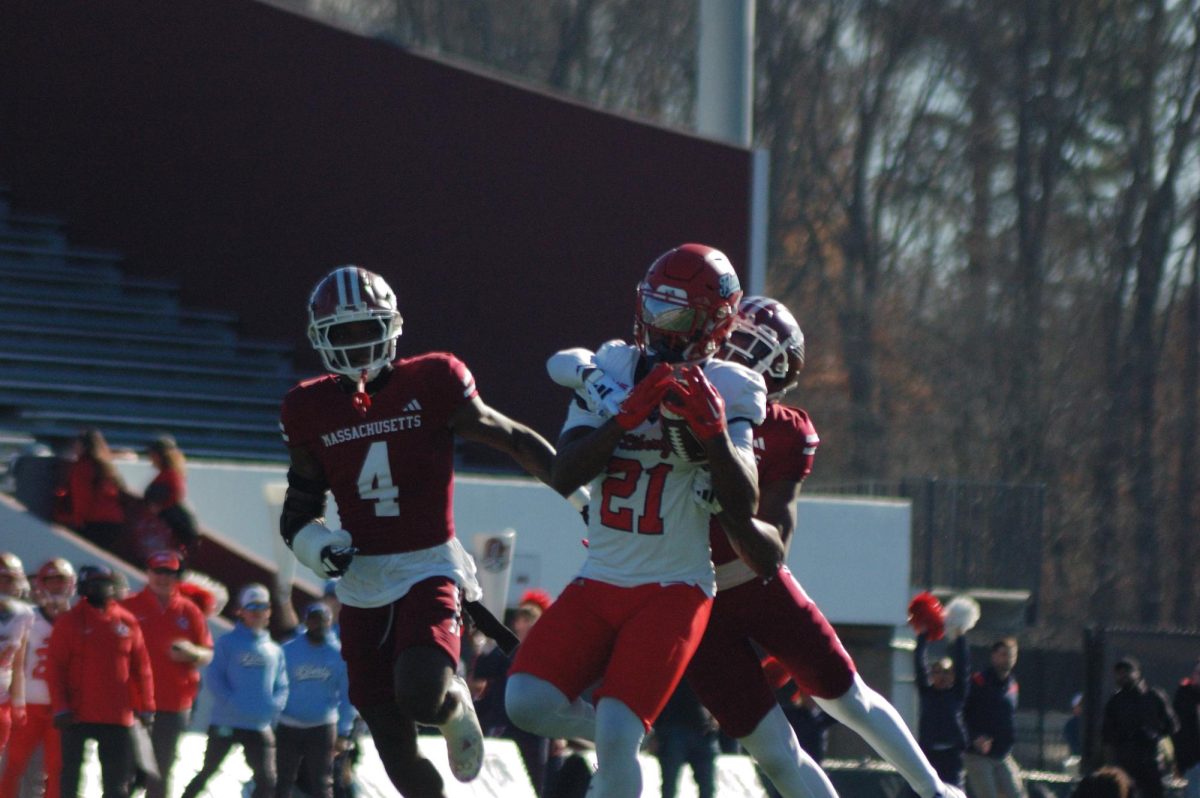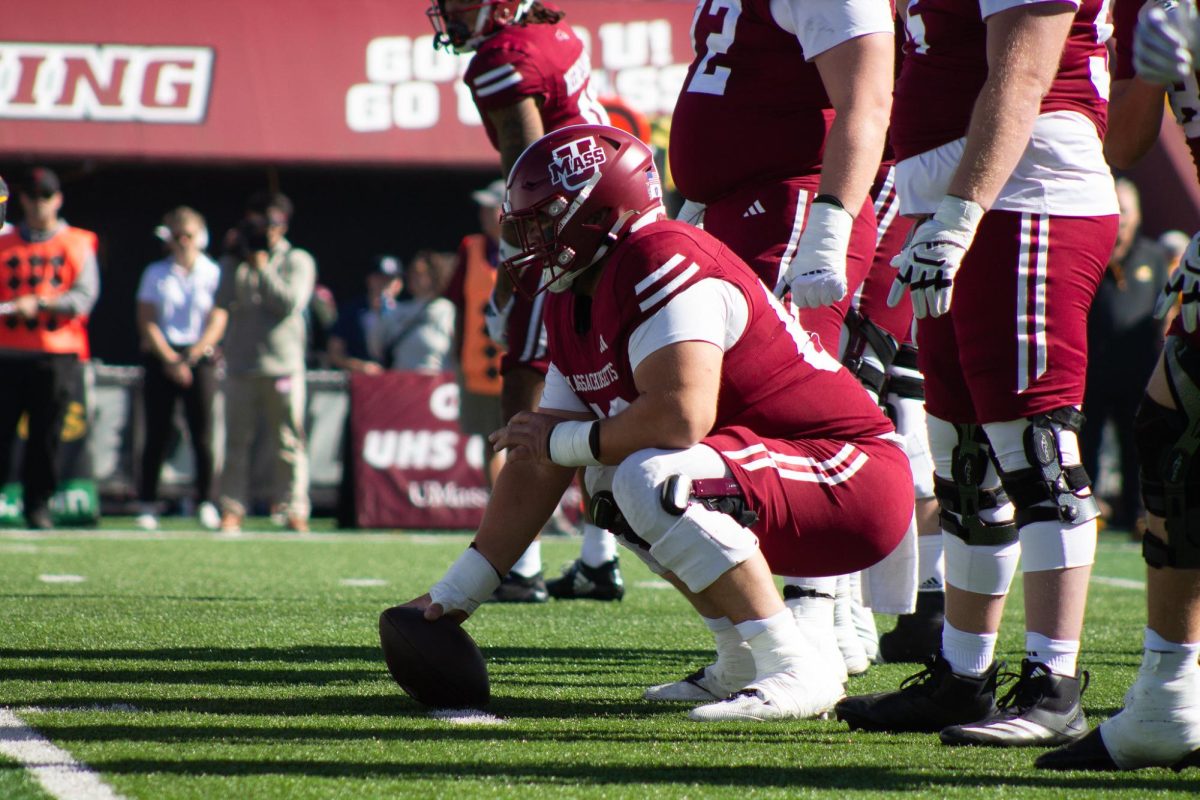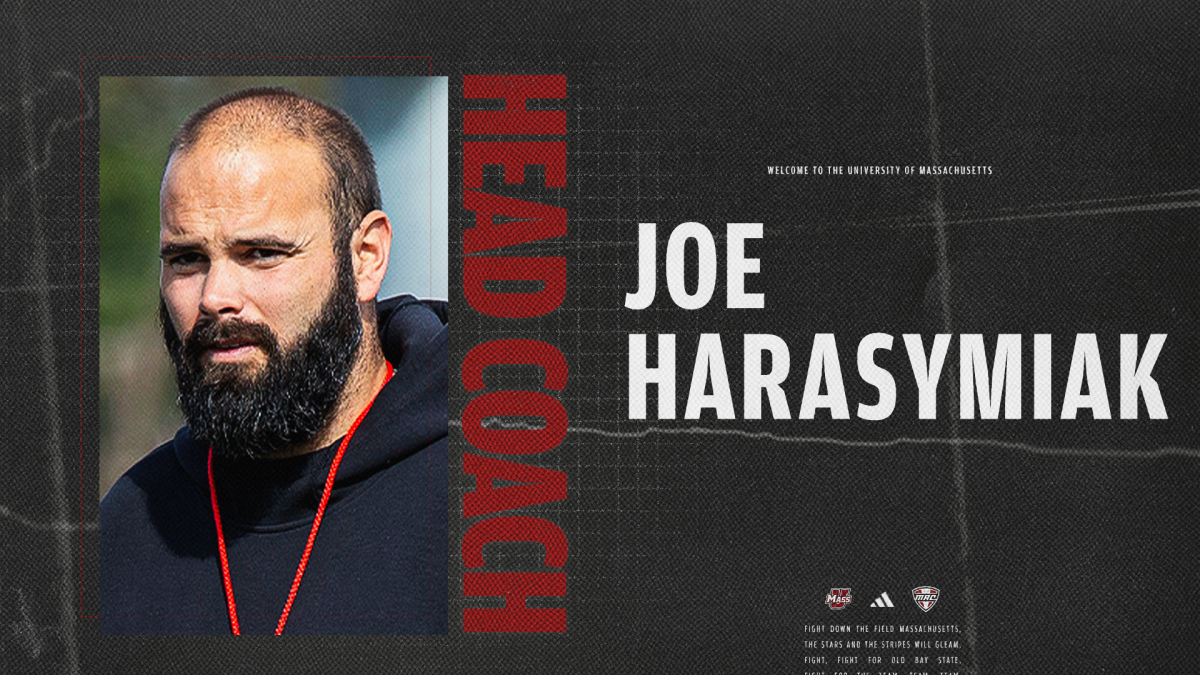Editor’s note: This article contains discussions of sexual assault and rape.
Liberty University defeated the University of Massachusetts on the football field 62-17 Saturday. But the final score is not the only important takeaway from Saturday’s game. A game that doesn’t hold much significance between the two schools can shine a light on conflicts each face pertaining to sexual assault, and how both football teams could have a positive impact on the issue.
An article from ProPublica went in-depth regarding the sexual assault and rape allegations on Liberty’s campus. Twelve women are suing the university following said allegations. Instead of punishing men for their wrongdoings, Liberty officials have penalized women for drinking alcohol and “being in any state of undress with a member of the opposite sex.”
The article states that law enforcement and others on campus attempted to deter women from filing complaints, instead of providing them with resources to receive help or taking steps to prosecute the assailants.
UMass has had problems of its own, as the University’s Greek life faces protests as a result of sexual assault allegations, most recently at the Theta Chi fraternity.
In the week leading up to the Minutemen taking on the Flames, everything was status quo.
Football was the focus, as it always is. But what if the two football teams, belonging to universities currently facing conflict surrounding sexual assault and rape, spoke out for a change?
It never happens. Football coaches, players and staff keep their mouths shut and their heads down to set all of their focus towards what happens the field. This is not me recommending college football teams become the primary catalysts against sexual assault and rape; but starting with something as simple as a team statement could make an impact.
A college football team usually releases a statement about any matter relating to sexual assault as a reactionary measure when one of its team members is found guilty of the act. Those types of statements are the equivalent of placing a Band-Aid on a bullet wound.
For UMass, a statement speaking out against sexual assault and rape would be very thoughtful, especially from a program that is heavily invested in, and a sport in general that is notorious for toxic masculinity. A team-wide statement wouldn’t move mountains, but would be an easy thing to do to show support against a cause that affects victims daily.
Liberty is in a similar boat, but likely to an elevated level due to the fact that the football program holds high profile figures — most notably head coach Hugh Freeze and likely first-round draft selection in quarterback Malik Willis. The Flames spend several million dollars every year to build their football program, giving them the ability to use their voice and influence for issues that are larger than football. Action addressing the allegations on campus has the potential to support the victims on Liberty’s campus who do not feel seen by the university.
The likely reality is that the football programs do not want to overstep any boundaries with universities; Not wanting to give off the perception that they are against what the schools have or haven’t done leads these programs to remain at the status quo.
At universities like UMass and Liberty, and the many others across the country that deal with sexual assault and rape cases every year, change must occur. Football teams are commonly some of the most popular figures on campus, and using that platform needs to be brought to the forefront of football programs. Whether that looks like a proactive statement, attending meetings or talking to survivors, simple yet important tasks such as these are what football programs need to move forward with.
Joey Aliberti can be reached via email at [email protected] and followed on Twitter @JosephAliberti1.

